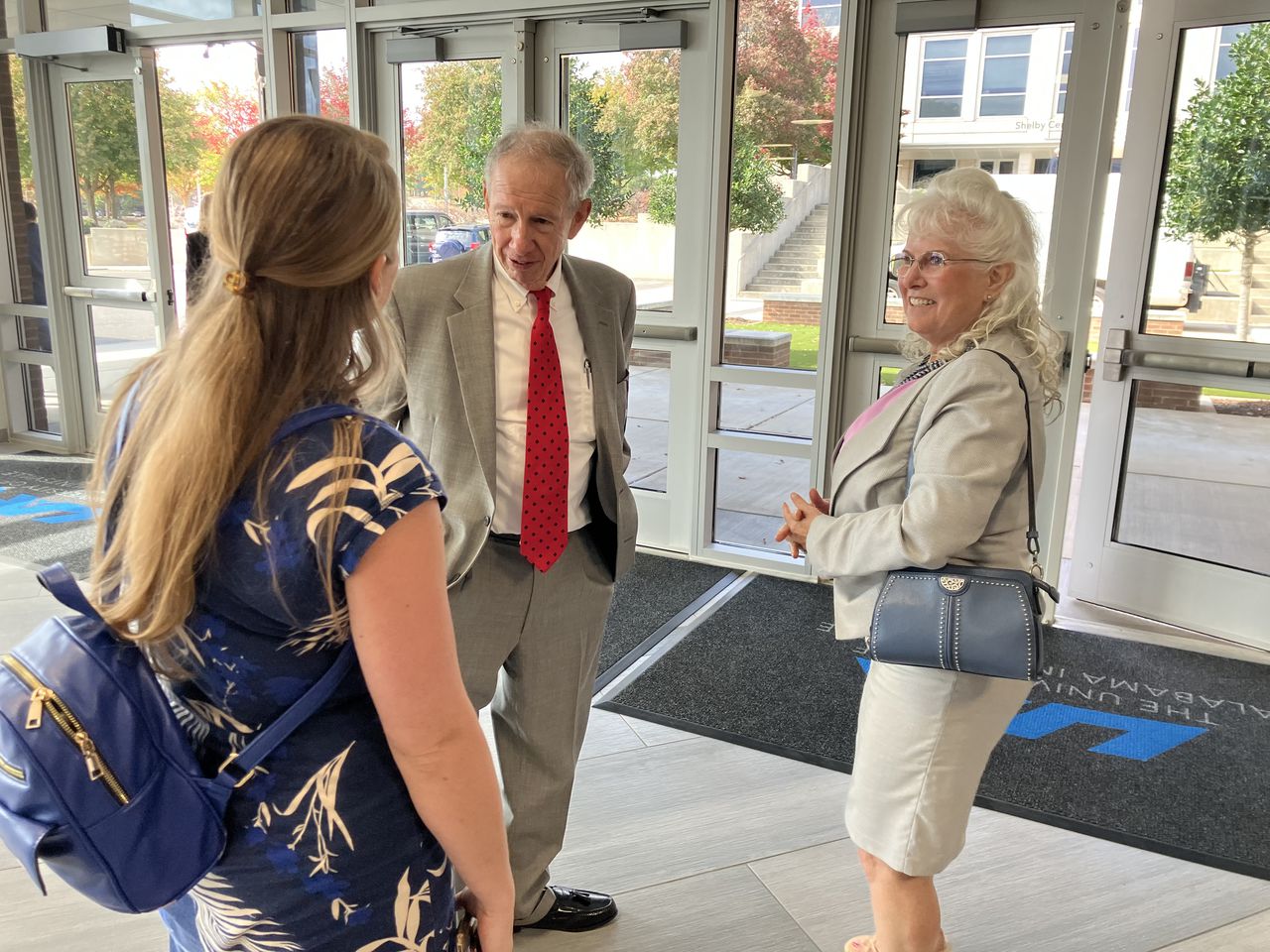Get serious, America, says former space agency administrator
Former NASA Administrator Michael Griffin closed this year’s Von Braun Space Exploration Symposium in Huntsville Friday with some tough love for his old agency and a cold shower for a new generation on why he thinks the agency exists.
“NASA is a national security program,” Griffin said at the symposium’s closing lunch at the University of Alabama in Huntsville. Every aspect of the public space program “is about the standing of the United States in the global arena. That is what it is about.
“If we can do some useful things in conjunction with that, I think that’s great,” Griffin said. “I worked on Hubble and am proud of that. But sorry, scientists, Hubble is a national security program. It’s about, ‘We’re better than you.’ And if that sounds jingoistic, I don’t care.”
Griffin, who led the space agency between 2005 and 2009, said President John Kennedy wanted to go to the moon in the early 1960s to demonstrate “the superiority of the American way of doing important things over other approaches.” Then, the threat was the Soviet Union, he said. Today, it is China.
“President Xi (Jinping) routinely makes statements that the Western democracies are bankrupt, have lost their way, are decadent. He asserts his intention that China should be the world’s superpower,” Griffin said. “When people tell you they’re out to get you, maybe you should pay attention. Maybe, he’ll die first and China will revert. I don’t want to place my bet on that hand.”
“The consequences to the world order of China being on the moon when the United States cannot even get there are profound,” he said. “I’m old but I expect to be there when they land. I want us to be there to greet them, not watching them on TV.”
Griffin spent much of his speech looking back at an old essay he wrote for the magazine Aviation Week & Space Technology. There were “some things in there I did get right,” he said, but there were also new lessons about like his long-held belief that “it would be great if we just had funding like we had in the Apollo years. We could really do something.”
However, when he checked, Griffin said, almost 45 years of budgets adjusted for inflation showed the Apollo era did not have more money. NASA had more money when he was administrator and has more money now, he said.
Got questions about Huntsville? Use this form to Ask the Lede. with this link to the form: https://forms.gle/FXJ4kCcDxwfkcLNc9
“Apollo got it all at once, which allowed the Apollo generation to do things in parallel that today we have to do in series,” he said, “because the budget is metered out … but (that) really doesn’t make that much difference.”
The Apollo Era was 15 years long, Griffin said, and NASA has had more money “in every 15-year chunk (ever since) than we had then.”
“So, what’s our excuse?” he said. “We have no excuse, as a country. I’m not even putting the finger on NASA because, as a former administrator, I know quite well you are the administrator not the creator. You are told to do what you are told by the combination of the White House and the (congressional) Hill… You get a prescription; you don’t write the prescription.”
“If it doesn’t matter whether you’re doing a lot in a short time (Apollo) or in series with the same money (the Space Launch System), are we any closer to the Moon?” Griffin asked. “The answer is no we’re not. I would argue we’re farther away. I would argue we’ve lost ground. Which I hate to say.”
Griffin critiqued NASA’s Artemis plan and spelled out some of its challenges. It took twice as long to develop and build the Space Launch System as it did the Saturn V, he said, and NASA’s plan for a “lunar gateway” space station orbiting the Moon “makes no sense.”
“The country is building three crew vehicles and none of them can get into and out of lunar orbit unassisted,” he said. “I don’t think I need to add to that comment.”
Griffin’s remarks closed the weeklong symposium that brings aerospace, government and academic attendees from around the country to Huntsville to talk about issues relating to government and commercial space programs. It is sponsored by the American Astronautical Society.
